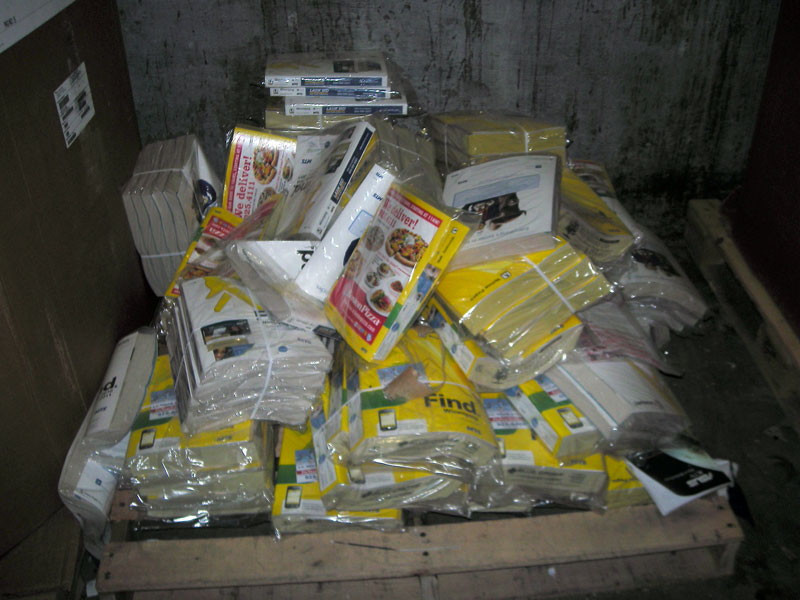All the numbers unfit to print
Technological evolution of the phonebook makes its way into the classroom
With so many online resources easily available to users, printing phone books might become a thing of the past.
Last month, Yellow Pages Group (YPG) announced that distribution of the White Pages in seven of Canada’s largest cities would only be distributed by request. As a result, national distribution has decreased from 28 million copies to 23 million copies. When asked if such plans were in store for Winnipeg, YPG said there are no immediate plans, but that something may be considered for the future.
“It is stable – one in two Canadians a month use the print copy to look up a business,” said Fiona Story, communication manager of YPG, via telephone from Montreal.
Yet, with so many technological advancements, YPG could not help but jump onboard. YPG also leads online directories and with over a century of experience in knowing local markets, users can get targeted results every time they use the YPG search feature for finding local businesses, people and reverse address lookup. However, the evolution does not stop at the Internet – YPG’s mobile application for smart phones has over one million downloads across Canada.
“ It is stable – one in two Canadians a month use the print copy (of the phonebook) to look up a business.
Fiona Story, communication manager, YPG
The shift to an online focus for downloading and searching for information has begun to influence the way students are expected to learn, according to Ashlie Wilson, program co-ordinator for the Division of Continuing Education Professional Studies at the University of Winnipeg.
“In our courses at the university everything is going wireless,” she said. “Students are required to have laptops, and they download everything – handouts, course syllabus.”
Wilson noted that the change was heavily influenced by environmental consciousness.
Kenton Larsen, an advertising and public relations instructor in the Creative Communications program at Red River College has championed making mobile devices such as the iPod Touch, iPhone, BlackBerry or Android phones mandatory for all first-year students in the two-year program.
“We want our grads to be prepared for the future, do well in the communications workforce,” he said. “I don’t want to hear about one of my grads in a few years not knowing that an app is a potential solution for a business’s problem.”
Although Larsen maintains that print copy will one day be a thing of the past, he admits he still uses his phone book once in a while.
“Ninety-nine per cent of the time I use my Yellow Pages app, but just a few months ago when I was looking to get a fence built I opened my phone book and looked under ‘fences’ for the biggest ad,” he said.
Larsen believes that one of the main reasons YPG says that print copy will continue to survive is because of advertising revenue. He thinks once they can figure out how to make the same revenue online, they might get rid of print copy all together.
Published in Volume 65, Number 2 of The Uniter (September 9, 2010)








